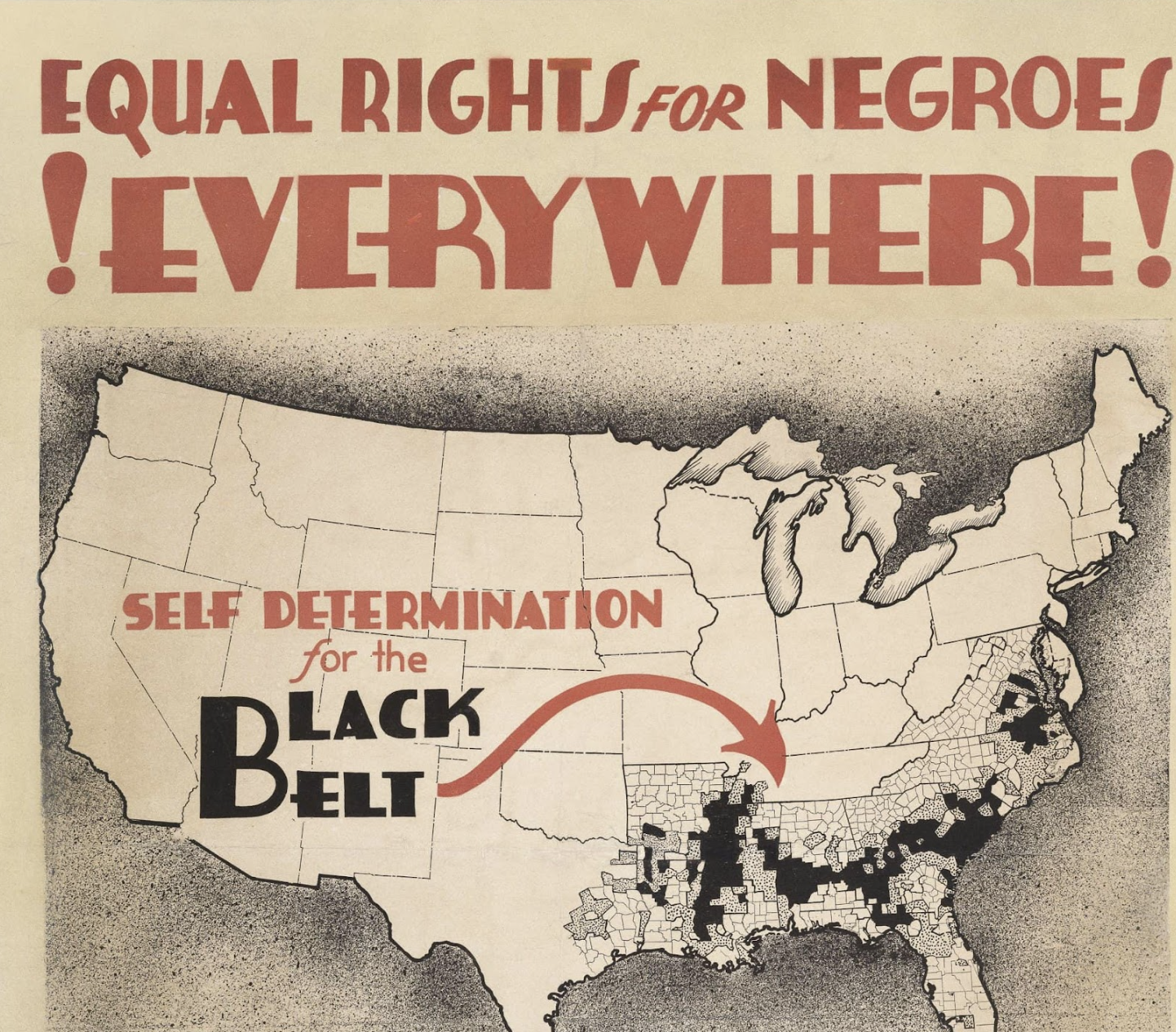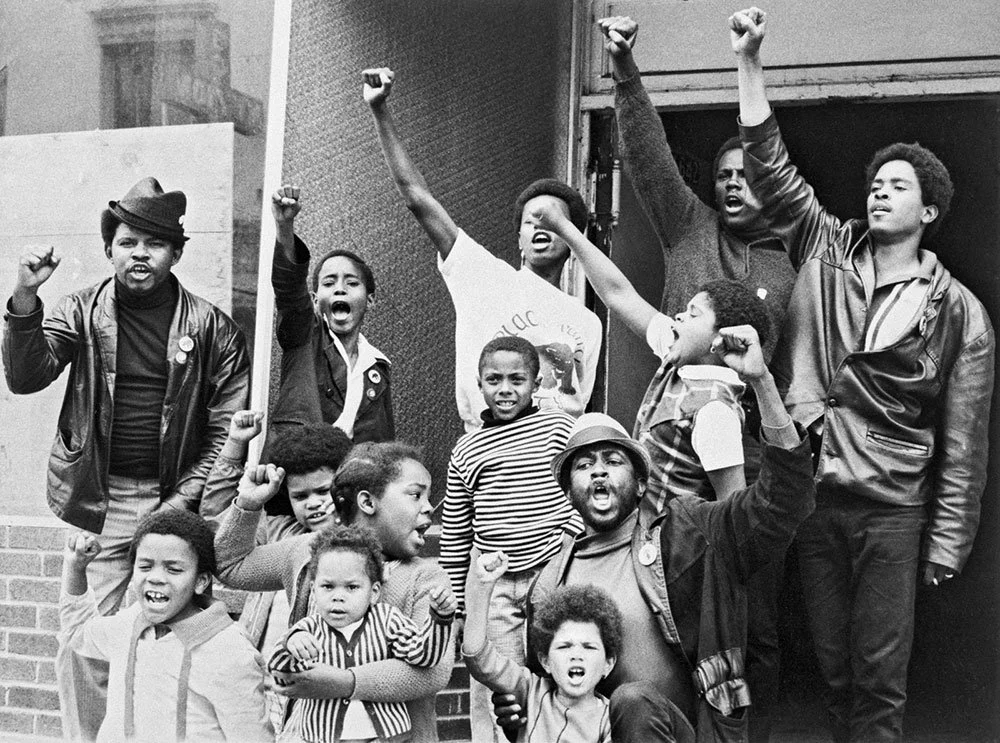MODULE 3Revolution: The Black Freedom Struggle in the U.S. and in the World
Class 1: Black Belt, Black Nation
Thursday, March 13 from 6:30 - 8:30 PM ET
Instructor: Joe Tache
What does it mean to claim nationhood within a nation? This class explores the Black Belt thesis, a revolutionary framework that defined Black Americans as an oppressed nation within the U.S. Emerging from the communists in the South, this framework united an understanding of economic exploitation, geographic oppression, and racial subjugation, while calling for a socialist revolution as the path to liberation. We’ll trace how this thesis laid the groundwork for Black national consciousness and shaped the broader Black liberation movement as critical to understanding the development of a socialist revolution in the United States.
Class 2: Red, Black and Revolutionary: Lessons from Black Communist Women
Saturday, March 15 from 1 - 3 PM ET
Instructor: Charisse Burden-Stelly
Black Communist women have always been at the forefront of political movements, from leading labor movements to advancing anti-imperialist struggles through their political organizations. This class examines how Black Communist women developed a methodology for not only understanding interconnected oppression along race, class, and gender lines, but put forward analyses and strategies that pinpointed the necessity of organizing to build collective power – lessons that are crucial for building our movement today.
Class 3: Black Power and the Civil Rights Revolution
Tuesday, March 18 from 6:30 - 8:30 PM ET
Instructor: Richard Benson
The Civil Rights Revolution was a radical challenge with the structures of white supremacy that led to a political and social transformation in the United States. This class explores the organizations, proposals, and achievements of this era, from SNCC’s grassroots organizing to the Black Panther’s revolutionary program the lessons of this period continues to inspire revolutionaries across the world.
Class 4: Radical Visions of Freedom
Wednesday, March 19 from 6:30 - 8:30 PM ET
Instructor: Barbara Ransby
Black revolutionaries understood the interconnected nature of the Black liberation struggle in the U.S. and the global fight for freedom, recognizing that U.S. imperialism was the primary obstacle to these efforts. In this class, we will explore the life and internationalism of Eslanda Robeson, a visionary Pan Africanist, dedicated anti-imperialist organizer, and champion of anti-colonial struggles in Congo, Ghana, and beyond, who understood the vital role of internationalism in achieving true liberation.
Class 5: Resistance to Political Repression: Prison & Rebellion
Thursday, March 20 from 6:30 - 8:30 PM ET
Instructor: Jared Ball
This class examines the revolutionary power of the prisoners’ movement and its role in exposing the prison system as a pillar of racial and class oppression. The Attica uprising and the powerful writings of imprisoned revolutionaries galvanized movements beyond prison walls. Behind bars, prisoners turned their cells into schools of revolution, becoming critical voices in the Black liberation struggle and the global fight against imperialism and white supremacy.
Class 6: Pan Africanism, Socialism, and the Global Struggle for Liberation
Tuesday, March 25 from 6:30 - 8:30 PM ET
Instructor: Layla Brown
Pan Africanism is both a vision and a practice–a global movement to unite African peoples, on the continent and in the diaspora, in the fight against imperialism and for sovereignty and self-determination. This class delves into the origins of this ideology, born out of the modern dispersal of Africans through the violence of the translatlantic slave trade, and its role as a unifying vision of solidarity. By examining the work of figures like Walter Rodney and Claudia Jones, we’ll explore how Pan Africanism connects the fight against imperialism and colonialism to the broader struggle for Black liberation worldwide
Class 7: Fighting Apartheid: Resistance and International Solidarity
Thursday, March 27 from 6:30 - 8:30 PM ET
Instructor: Lisa Brock
The fight against apartheid in South Africa was a global battle that mobilized millions in solidarity across continents. This class examines how the struggle against apartheid connected with the Black Freedom struggle in the U.S., uniting movements in a shared fight against white supremacy and imperialism, and will explore the actions that helped bring down apartheid and the lessons they hold for building internationalist solidarity and a mass movement today.












